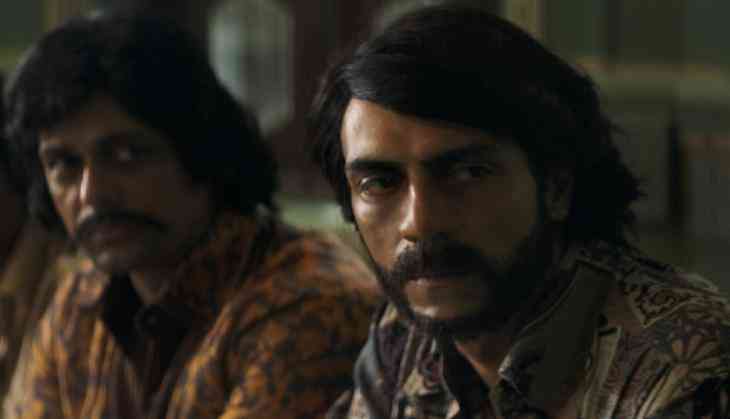Daddy movie review: The first good desi gangster movie in a long while

Stories about powerful men have a certain structure. There's abject poverty, a moral dilemma, a chosen path, success, and a nemesis.
Daddy, an Ashim Ahluwalia picturisation of Mumbai's gangster-politician Arun Gawli, checks all those boxes without losing track of its timeline and setting. Which is more than one can say of many other gangster films eager to please.
Arun (Arjun Rampal) is always grey, never black. His life is juxtaposed with that of Inspector Vijaykar Nitin's (Nishikant Kamat), a man who chose the path of righteousness after getting his desired promotion. Vijaykar's profession chose him due to his privilege and Arun's chose him due to his lack of privilege, the film tells us.
The real Arun Gawli is currently serving life after being convicted for the murder of Shiv Sena leader Kamlakar Jamsandekar. The film starts with this murder, one where we don't see the killer's face, and goes back in time employing various narrators through the course of the film.
The narrative style, though interesting, isn't always effective. At certain points, the film seems to introduce characters just to have them narrate and take the story forward. What could have been an interesting form of narration gets lost in overkill.
But that's pretty much all the overkill there is in this gangster film that shows an enormous amount of restraint. The acting, especially that of Kamat as the main cop, is pretty great. Arjun Rampal joins Farhan Akhtar (as 'Bhai' or Dawood) and makes their post-Rock On chemistry work in mysterious ways.
One would make Farhan Akhtar out to be a bizarre choice for the role of D-Company chief, but it somehow works out, because the film isn't super high on drama and Akhtar does a good job of staring at people intimidatingly.
Daddy makes for excellent PR for Arun Gawli, not because it desperately advertises him as a good man, but because it makes everyone look equally bad. And in that nexus of grey vs grey, Gawli appears to be a victim of circumstances, the Robin Hood 'Daddy' he's made out to be.
The leader of Byculla Company, in the trailer, and subsequently the film, is introduced as “The only one who did not run” – a direct jab at Dawood Ibrahim and his men. This film will, in all probability, sway public sentiment in his favour, and in that moment one can only hope people are unable to equate the very ordinary looking Gawli with Arjun Rampal.
Besides, the film is cinematically sound, albeit a bit long. With better editing, and a superior female cast (barring Shruti Bapna as Rani), Daddy could be among India's best gangster films. Not that gangsters should be romanticised like Bollywood obviously loves to.
The music is interesting, for the film has all of two songs – one being the disco number Dance Dance, and the other is a Ganesh Chaturthi aarti song. The latter is well-placed for it creates a certain tension in the scene, and as for the former, it is downright the best item number to come out of the industry in the past decade.
Dance Dance recreates the Mithun Chakravarty era with absolute brilliance. A perfect setting to establish the time, the song is amusingly about space travel, and shows a very early eighties understanding of the future.
Daddy is true to every decade it shows. Right from the cars, to the clothes, to the technology, the film chronicles India through the 80s, 90s and present times quite well. With a clever ending that doesn't declare Gawli innocent or guilty, the film ends with more questions than answers.
Should you watch it?
If you like gangster movies, yes. If you liked Sarkar, absolutely yes. But if not, you could always watch it later on TV.
Rating: 3.5/5


